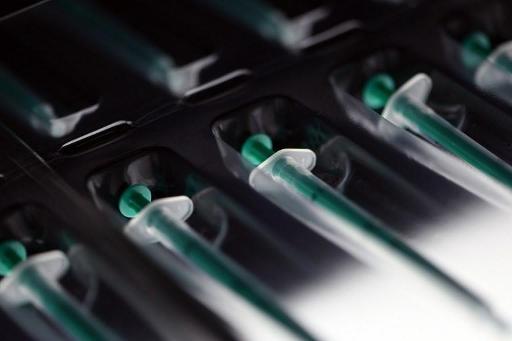More than one-fifth of the world's population may not have access to a vaccine against Covid-19 until at least 2022, with half of the potential doses for next year having been reserved by wealthier countries, researchers warned Wednesday.
"The operational challenge of a global Covid-19 vaccination program will be at least as difficult as the scientific challenge of developing it," said an editorial in the medical journal BMJ, which publishes the study.
Researchers at the Johns Hopkins Bloomberg School of Public Health analyzed pre-order figures for vaccines announced by countries around the world even before the first approvals.
As of November 15, 7.48 billion doses had been reserved from 13 manufacturers, making it possible to vaccinate an estimated 3.7 billion people (since most vaccines require two injections).
However, 51% of these doses have been pre-ordered by wealthy countries, which account for only 14% of the population, according to researchers. Low- and middle-income countries, representing 85% of the world's population, will have to share the rest, they add.
As a result, they say: "At least one-fifth of the world's population will not have access to vaccines before 2022.
According to these researchers, the implications could go far beyond health considerations alone.
"To varying degrees, international trade or travel could continue to be disrupted until Covid treatments or vaccines are widely available," they write.
Many countries have joined an alliance launched by WHO called Covax Covid-19 Vaccine Global Access, which negotiates with laboratories for equitable access to vaccines. But the United States or Russia are not part of this program.
According to another study published at the same time by the BMJ, projections show that 3.7 billion adults worldwide want to be vaccinated against Covid.
A few countries, such as the United Kingdom, the United States and Canada, have already started vaccinating with the most advanced vaccine, the Pfizer/BioNTech vaccine.
In Europe, its authorization could be granted around Christmas.
Belgium's Plan
Belgium will likely start vaccinating its population against the coronavirus on the same day as the other Member States of the European Union.
Speaking on Wednesday, European Commission president Ursula von der Leyen said that all EU members will be able to start vaccinating “on the same day,” after Pfizer-BioNTech’s vaccine gets the official green light.
“Finally, within a week, the first vaccine will be authorised, vaccinations can begin. It is a huge task,” she said.
If the approval schedule explained by von der Leyen holds, and the EMA approves Pfizer’s vaccines before Christmas, a small number of doses could already be available in Belgium this year, according to Dirk Ramaekers, head of the vaccination strategy task force.
“Those doses will then be for a few residential care centres. We will not let that opportunity pass us by,” he told VRT. “That first administration will also teach us a lot. We will then be able to vaccinate on a larger scale in January.”
The process will go through the hospitals, which will serve as a passage to the residential care centres.
The Brussels Times

